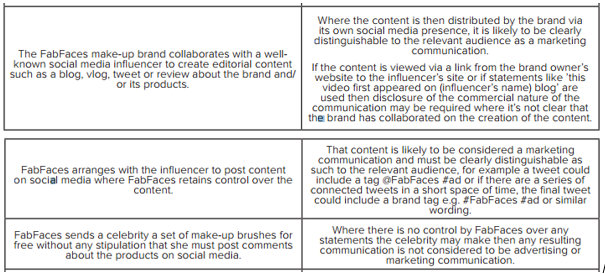Changes to Social Media Influencer Guidelines from the AANA
Find out how changes to Australian advertising guidelines from the AANA have effects on how brands and social media influencers in their Influencer Marketing campaigns.
The Australian Association of National Advertisers (AANA) have released an update to their best practice guidelines with a significant focus on social media and social media influencers.
What does this mean for brands wanting to engage with influencers? What does this mean for influencers making a living off social media? Let us break it down for you.
Is it against the guidelines to engage in Influencer Marketing?
No. The guidelines simply state that any advertising must be able to be recognized as such by the audiences viewing the content. Moving forward, Influencers that have profited from a brand to advocate their products and services need to highlight this fact to their audiences.
Who do the changes apply to?
Anyone involved in advertising and marketing a product to an audience will need to abide by these changes. This includes brands, media, agencies and influencers choosing to represent brands.
Do influencers only need follow these guidelines for paid/sponsored agreements?
No, the updated recommendations from the AANA apply to any collaboration a brand undertakes with influencers including contra deals, sponsored posts, free or trial products.
What does this mean for brands?
Any influencers you engage with must make it clear to their followers that they are posting for you as part of a marketing strategy. This will mean that on any posts they create they will have to tag your brand and also include a hashtag such as #ad or #sp.
This should not cause too much concern or disruption for brands as most influencers have been applying this practice already.
What does this mean for influencers?
You now have a greater responsibility in ensuring your audience knows which content is sponsored and which is organic. If you have been engaged by a brand to contribute to a marketing strategy, you are obliged to tag the brand and include a hashtag indicating sponsorship (i.e. #ad, #sp or #sponsored).
These rules apply to posts where the brand you are representing retains control over the content going out. If you are receiving payment, a brief or instructions on how, what, or when to post, the post is considered to be driven by the brand and requires you to advise your audience of this.
However, if you have been sent product to trial from a brand (without the requirement for you to post it) and you make the personal choice to post it, then this is not considered advertising and does not require the tags.
This should not cause too much disruption for influencers and the communities they have built. When you’re considering the copy, determine if a brand is engaging in advertising or merely getting you to trial their product without expectation of posting to ensure you are keeping to the new guidelines.
Still confused?
We have included the examples surrounding Influencer Marketing provided by the AANA below to clarify:

Check out the full set of guidelines here.







